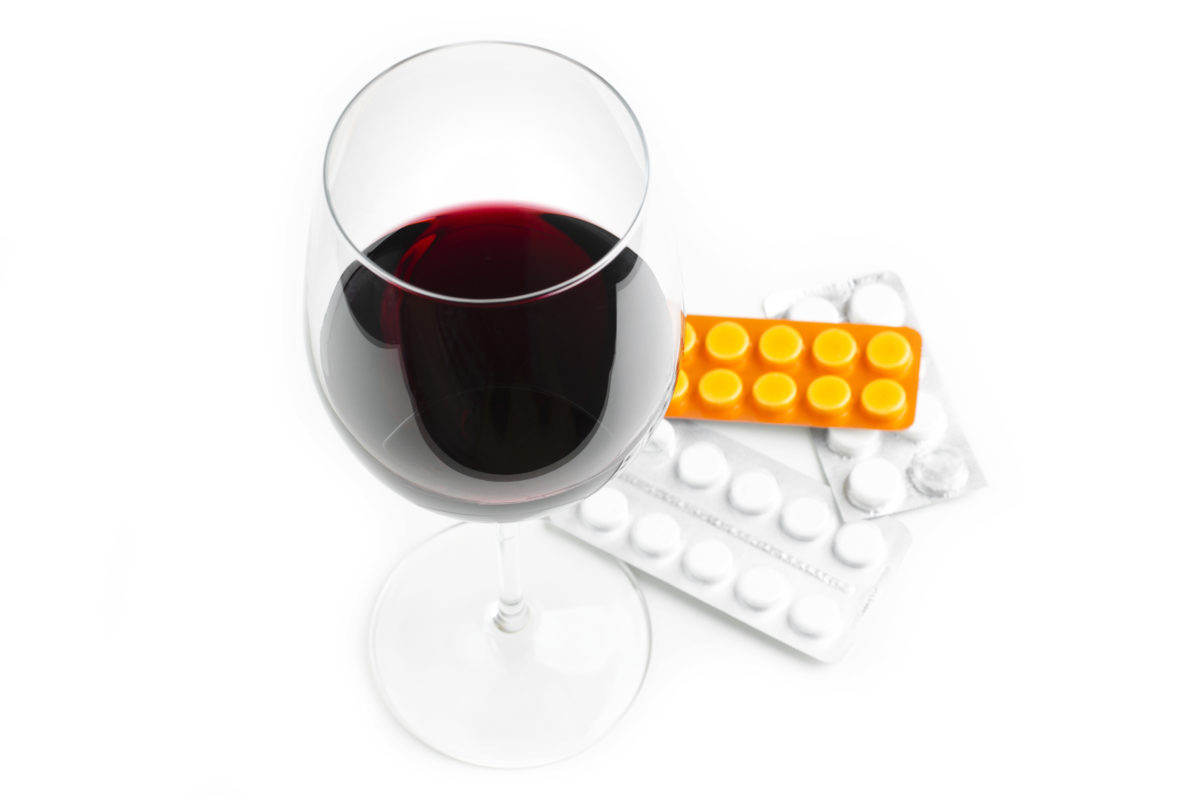Enjoy a Safe Celebration
Mark Mercure, Pharmacist
Home Health Care Pharmacy
The holiday season is upcoming, which means holiday parties and get togethers with friends and loved ones. These fun social events also present many people with the choice of whether or not to drink alcohol. For those of us who also take medications of some kind, we may be unsure as to whether or not the combination of these medications with alcohol will be problematic.
As a general rule of thumb it is best not to combine medications with alcohol since so many interactions are possible. Some of these interactions can have seriously negative consequences. To know for sure how the specific medication that you are taking will mix with alcohol, it is best to check with your pharmacist. Below are some specific categories of medications which can be especially problematic in combination with alcoholic beverages.
Opioid Pain Relievers – This category includes prescription pain killers such containing codeine and morphine among others. Combining alcohol with any of these drugs can cause increased drowsiness and dizziness, and increases the risk of accidental overdose.
Sedatives for Anxiety or Sleep – Medications known as benzodiazepines (such as lorazepam or clonazepam) should not be combined with alcohol in any amount because of the serious risks of excessive sedation, impaired motor control, unusual behaviour and memory problems.
Antidepressants – Besides leading to excessive sedation, dizziness, and increased risk for overdose, drinking alcohol while on antidepressants can be harmful because it can also increase feelings of depression and hopelessness.
Cough and Cold Medication – Avoid combining alcohol with any short term cough and cold remedy that you may be taking. Possible drug interactions could include drowsiness or dizziness (especially if the product contains an antihistamine). Also, your body needs rest to fight off a viral or bacterial infection, not a late night.
Diabetes Medications – Combining alcohol with certain medications used to manage diabetes can lead to abnormally low blood sugars, nausea and flushing, and sudden changes in blood pressure.
Blood Pressure Medication – Certain blood pressure medications can cause irregular heartbeat, dizziness or fainting when combined with alcohol. Check with your pharmacist to be sure.
Anti-inflammatory Drugs – Whether prescription or over-the-counter, anti-inflammatory medication when combined with alcohol can carry a risk for stomach upset, bleeding and ulcers, as well as possible liver damage.
This list is far from exhaustive – antibiotics, muscle relaxants, seizure medications, cholesterol-lowering drugs, as well as medications for heartburn, seizures, ADHD, nausea, and more can be problematic to combine with alcohol. Again, check with your pharmacist to be sure.
Older adults, and especially women, are at a higher risk for all problems associated with alcohol and medication use. It is important not to assume that the same amount of wine that caused no problems last year with your medications will continue to be just as safe as you continue to age.
This holiday season, make a smart choice for yourself when it comes to drinking alcohol, and check with your pharmacist for advice. If you are hosting a party, make sure to have on hand non-alcoholic options such as alcohol-free beer, sparkling juice, mocktails, or virgin caesars to offer to your guests who may need to avoid alcohol because of their medications.
Mark Mercure is a Certified Geriatric Pharmacist, specializing in the medication needs of older adults. He currently practices at Home Health Care Pharmacy, in Brandon.

